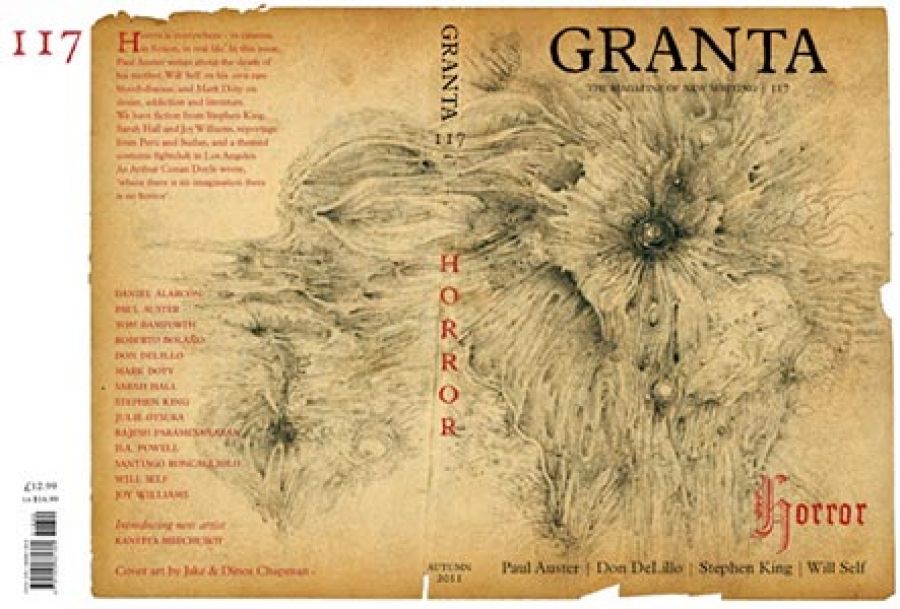
- Free Article: No
- Contents Category: Journal
- Review Article: Yes
- Online Only: No
- Custom Highlight Text:
Arthur Conan Doyle wrote, ‘Where there is no imagination, there is no horror.’ The 117th issue of Granta is not short of imagination. Contributions range from a posthumously published zombie tale by Roberto Bolaño, to translated reportage on Peru by Santiago Roncagliolo, to new fiction by Stephen King. In Don DeLillo’s ‘The Starveling’, an elderly cinephile wanders the streets of Manhattan looking for a purpose. His life, which revolves around movie screenings, is a disturbing portrait of idleness. Even the most disconcerting circumstances fail to shake him from his malaise.
- Book 1 Title: Granta 117
- Book 1 Subtitle: Horror
- Book 1 Biblio: Granta, $27.99 pb, 256 pp
- Book 1 Readings Link: https://www.booktopia.com.au/granta-117-john-freeman/ebook/9781905881451.html
In ‘False Blood’, Will Self recounts his relationship with the needle, from heroin addiction to cancer. ‘The Crab’, as Self refers to the disease, becomes a mythical sea creature, scuttling away with friends and family. His neighbour, also a cancer sufferer, puts his sickness to good use: his thickened blood serves as fertiliser for his pumpkins. Gruesome as this may seem, the real horror in Self’s piece is not blood or death, but expression. Simile becomes a symptom of illness: ‘for does not the fiction-maker engorge himself with the similitude of disparate things? – I had looked feverishly for what my bloody disorder was like.’
Paul Auster’s ‘Your Birthday has Come and Gone’, a memoir, relates the author’s mother and her death. Written in the second person, the reader suffers Auster’s grotesquely dispassionate sense of loss firsthand: ‘yet even after the paramedics have wheeled her out of the apartment in a black body bag, you continue to feel nothing. No tears, no howls of anguish, no grief – just a vague sense of horror growing inside of you.’
Although Granta readers may know what to expect from the publication – political non-fiction, memoir, unconventional fiction – the composition is never formulaic. The ‘Horror’ issue is no exception.


Comments powered by CComment